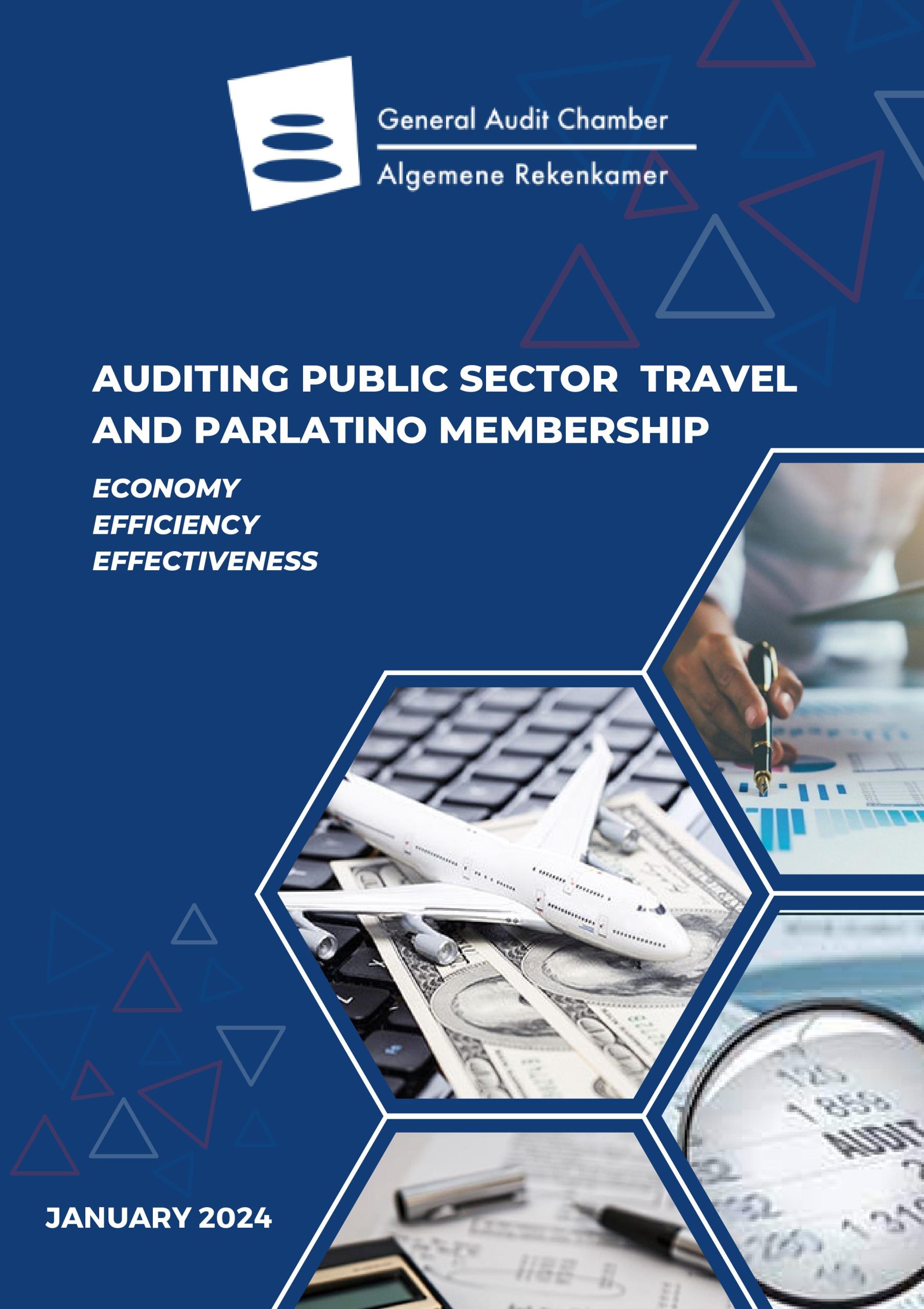Audit Chamber report is critical of travel expenditures
PHILIPSBURG — The General Audit Chamber’s audit into public sector travel contains a handful of recommendations aimed at improving accountability. Among them is the establishment of a national decree containing general measures (Lbham) about accommodation expenses and travel insurance for civil servants.
The Chamber furthermore recommends to make economy class the standard for traveling, to split the per diem into travel and lodging and meals and incidentals and to require the return of unspent per diem.
In 2022, the year covered by the audit, government and parliament spent 1.24 million guilders ($692,737) on travel and accommodation. This was an increase of 162 percent compared to the previous year. With 395,174 guilders ($220,768) in expenditures, parliament stayed below its budgeted 652,750 guilders ($364,665). The government, on the other hand, went more than 100 percent over its 590,906 guilders ($330,115) budget by spending 1,234,179 guilders ($689,485).
We recommend amending the current regulations and travel policy to require reports justifying in-person travel,” the audit report states. “Accountability for per diem expenditures including the return of unused public funds should be enforced. Implementing these measures ensures transparency and sets an example of prudent financial management.”
Under the current regulations, ministers and members of parliament are entitled to travel first class. The auditors explain what this means: “First class is all about luxury and personalized service, while business class offers a balance between comfort and affordability. Premium economy provides extra comfort for a lower price and economy is usually the cheapest option.”
In Curacao, the travel policy does not permit first class travel and it already splits per diem in accommodation and meals and incidentals. The maximum allowance for lunch and dinner in Curacao is $80 per day for politicians traveling from Curacao.
St. Maarten’s politicians get a per diem of 720 guilders ($402) per day, while the chair of parliament receives a onetime 900 guilders ($503) for representation costs.
Remarkable: the per diem allowance for civil servants increases when the minister is present or arrives at a travel destination. “We fail to understand the rationale and justification for this increase based solely on the minister’s presence,” the report states.
Ministers and parliamentarians are not required to track their expenses. In other words, they do not have to explain how they spend their per diem allowance. The Audit Chamber notes that there is therefore a risk that the money is used for personal purposes.
That politicians are not eager to regulate the way they are spending the people’s money becomes clear from another observation in the report. The Chamber refers to article 72 of the National Ordinance Substantive Civil Servants Law. This is the basis for compensation of business trips for civil servants and it requires the formulation of specific rules through a national decree. “After a decade, the legally required national decree has not been drafted,” the auditors observe. The report highlights the costs the country incurred when Minister of Justice Anna Richardson traveled to Geneva, Lyon, Paris and The Hague. The total cost of this trip was 33,020 guilders ($18,447). The minister spent 9,904 guilders ($5,533) on tickets, the head of foreign relations 3,575 ($1,997) and the senior policy advisor 3,977 guilders ($2,222). The per diem for the minister and the head of foreign relations department was 5,652 guilders ($3,158) each and for the senior policy advisor 4,260 guilders ($2,380).
Asked about how they sent this money, the minister and the policy advisor said that they had fully used their per diem and that there was no remaining balance. The chamber was unable to verify whether this is correct or not.
Part of this trip was a visit to Louis Vuitton in an effort to strengthen anti-counterfeit initiatives. That’ll be a tough call for St. Maarten because the customs department currently employs 33 ftes (full time employees), while it needs 66 ftes for basic functioning. Customs focuses on detecting drug and weapons, which are both found weekly and there are no resources available to check for incoming counterfeit products.
Minister Richardson booked a small success during this trip when she visited The Hague to discuss St. Maarten’s cell shortage. As a result, twelve inmates were transferred to prisons in the Netherlands.
The report furthermore dedicated some space to a trip to the Monaco Boat Show in an attempt to promote St. Maarten as a destination for super yachts. This trip was organized at the initiative of a private marina and the government spent 14,420 guilders $8,056) on branding materials, lunches and representations. The costs for this trip were in excess of 30,000 guilders ($16,760). “The effectiveness of allocating 30,000 guilders towards the Monaco boat show to achieve the desired objective is uncertain, as there is a lack of a clear strategy supported by economic data for the sector,” the audit report states.



























